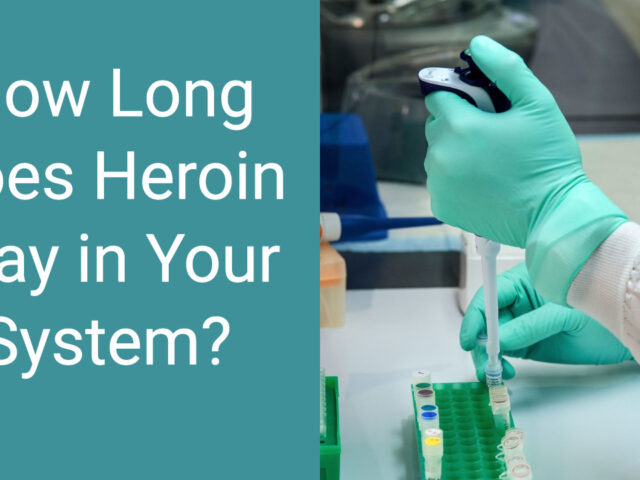Rivotril is a brand name for the medication clonazepam, which belongs to the group of medicines called benzodiazepines. Benzodiazepines are a class of psychoactive drugs used as a depressant. It treats certain types of seizures and is sometimes prescribed to help treat anxiety. Other brand names of clonazepam include Klonopin and Epitril.1

What is Rivotril and How Is It Used?
Rivotril is a prescription medication that doctors give to help relieve panic attacks and control certain seizures related to epilepsy and other conditions, including Lennox-Gastaut syndrome, akinetic, myoclonic, and absence seizures. Some doctors also use it to treat acute mania, restless leg syndrome, insomnia, tardive dyskinesia, and REM sleep behavior disorder.2
It works as a depressant in the brain by targeting your nervous system then slowing it down to relax your body and prevent seizures and conditions related to anxiety. However, while it relieves symptoms of seizures, it will not cure the condition.
You should not take Rivotril unless your doctor prescribes it. If you are prescribed to do so, then you should continue taking it until your doctor tells you to stop. Additionally, when you begin taking it, you might not feel the full effects of the medication until after you regularly use it for several weeks.
Rivotril Dosage
Rivotril comes as a small, round tablet in either a 0.5 mg dosage or 2 mg dosage. The smaller dosage tablets are distinguishable due to their pale orange color, while the larger dosage is usually white.
It is safe for patients from infancy until adulthood to take the tablets with their doctor’s permission. The starting dose for infants should not be more than 0.05 mg per kilogram of body weight per day. For adults, the starting dose should not be over 1.5 mg per day in three divided doses. Your specific dosage will depend on your body weight, diagnosis, and other medications. You should swallow the tablets whole with a glass of water. You can also take them with or without food.2
Rivotril is also available as a liquid that you take as drops and is often prescribed for children. Infants begin the prescription at around five drops a day, while children 6 to 12 years old may take up to 60 drops a day, depending on their doctor’s prescription. You should not administer the drops directly into the patient’s mouth. Instead, you should measure them into a spoon using the provided dropper. The patient can take it with water, tea, or fruit juice – except for grapefruit juice.2
In some cases, a medical professional will administer Rivotril through an injection.
Serious Drug Interactions
Tell your doctor of any other medications you are using before taking Rivotril, as they might interfere with its effects or cause serious side effects. Some drugs that are known to interfere with Rivotril include:2
- Seizure medications
- Narcotics and pain relievers
- Muscle relaxants
- Sleeping medication
- Medicines for mood disorders
- Phenytoin, phenobarbital, carbamazepine, and valproate
Taking opioids with Rivotril can cause serious side effects, including severe drowsiness, trouble breathing, coma, and death. You should also avoid alcohol while using Rivotril.
When You Should Not Take Rivotril
Rivotril is not for everyone who experiences seizures or anxiety. Here are a few cases where you should not take the medication unless directed by your doctor.
- You are allergic to benzodiazepines
- You are allergic to clonazepam
- You are allergic to any of the non-medicinal ingredients
- You have lung disease
- You have a liver condition
- You have glaucoma
- You have myasthenia gravis
- You suffer from sleep apnea
- You are pregnant or breastfeeding
Rivotril Abuse Risks and Signs
Rivotril use puts you at risk for abuse and addiction, even if you take it as your doctor directed. It also increases your risk of overdose if you take it with other substances like opioids, alcohol, or illicit drugs. Before taking Rivotril, discuss your dependence, addiction, and withdrawal risks with your doctor. Your doctor should then continue monitoring you for signs of drug abuse while taking the medication.
Some signs you should look for that might signal a possible drug dependence include:2
- Craving the drug
- Taking more than your prescribed dosage
- Increasing the frequency with which you take it
Rivotril Side Effects
You may experience adverse side effects even when you take Rivotril as prescribed. They are often minor and are only present while your body adjusts to the new drug. However, when you misuse the drug, you increase the chance of developing unpleasant and potentially dangerous side effects.
Here are some common potential side effects of taking Rivotril.2
- Drowsiness
- Muscle weakness and dizziness
- Increased salivation
- Issues with movement control and balance
- Memory impairment or confusion
Other less common side effects include:
- Increased lung secretion (symptoms include breathing difficulties or severe choking and coughing)
- Changes in your blood and liver
- Falls and fractures due to drowsiness and balance issues
A few rare yet serious potential side effects include:
- Aggression, rage, or irritability
- Anxiety or restlessness
- Hallucinations or delusions
- Sleep disturbances
- Allergic reactions
- Depression
- Suicidal thoughts
- Respiratory depression (symptoms include slow, shallow, or weak breathing)
If you experience any severe side effects, call 911 immediately. For other side effects, contact your doctor.
Long-Term Effects of Rivotril Use
When you take Rivotril for a long time, you increase your risk of dependence and experiencing withdrawal symptoms when you quit using the medications.
Withdrawal
Withdrawal may occur when you suddenly change your dosage, switch medications, or cease treatments altogether. You should not stop taking the medication without first talking to your doctor. While your withdrawal symptoms may be mild, they can also be life-threatening in some cases. Your chances of experiencing withdrawal symptoms are highest if you take the medication for a long time or are taking a higher dosage. However, some have also experienced withdrawal on low dosage or after taking the medication for a shorter time.
Some signs of Rivotril withdrawal include:
- Shaking
- Sweating
- Agitation and restlessness
- Sleep disturbances
- Anxiety
- Headaches
- Muscle pain
- Tension
- Restlessness
- Confusion and irritability
- Numbness or tingling
- Hallucinations
- Light and touch sensitivity
Many of your withdrawal symptoms are similar to your health condition and might feel like a relapse. Additionally, the length of your Rivotril withdrawal will depend on multiple factors, including the span of use, dosage, and other medications. Some symptoms may persist for months after you stop using the drug.
You can reduce your risk of experiencing withdrawal symptoms by talking to your doctor before changing how you take Rivotril, following your doctor’s instructions when changing your dosage, and immediately telling your doctor about any unusual or severe symptoms.
Overdose Risks and Signs
You are at a higher risk of overdosing on Rivotril if you drink large amounts of alcohol, use street drugs, or have previously overdosed on medication. If you or a loved one took more Rivotril than your doctor prescribed, immediately call your doctor or poison control as overdose symptoms come on rapidly.
A Rivotril overdose could be life-threatening unless you take prompt action. Some signs of an overdose include:
- Drowsiness
- Fatigue
- Confusion
- Dizziness
- Difficulty breathing
- Weakness
- Unconsciousness
If someone is exhibiting several or all of these symptoms, call 911 for immediate help.
Overdose Treatment
If you overdose on Rivotril, your doctor will want to monitor you for severe or life-threatening side effects. Your observation period will consist of monitoring your vitals, IV fluids for hypotension, and atropine for bradycardia. If you experience respiratory depression, your care team will keep your airways open through intubation or artificial respiration.3
Some doctors may recommend using flumazenil as an antidote to Rivotril. However, this medication is controversial because it can lower your seizure threshold and has several potentially severe side effects. Therefore, your doctor must decide if the side effects outweigh the benefits of treatment.
Long-Term Treatment
If an overdose occurred because of Rivotril abuse, you should consider a long-term treatment plan to help the patient fully recover from the drug and achieve long-term sobriety. Potential treatment plans include inpatient or outpatient care where your loved one can attend support groups, receive aftercare, and remove themselves from triggering environments.
How to Seek Treatment for Rivotril Abuse
Rivotril has many benefits but is also addictive and can cause severe symptoms, including overdose and withdrawal. If you or a loved one is experiencing Rivotril abuse or withdrawal symptoms, you can seek treatment at California Behavioral Health.
Contact us to discuss your treatment options for Rivotril use disorder.
Frequently Asked Questions About Rivotril
What is Rivotril used for?
Rivotril is a medication to treat certain seizures and panic disorders. In addition, it is often used as a treatment for epilepsy.
How much Rivotril should you take?
Your dosage of Rivotril depends on your age and weight. The recommended initial dose should not go over 1.5 mg per day and the maintenance dose for adults will take between 8-10 mg each day in three divided doses. Ask your doctor before you begin taking Rivotril.
What are the benefits of Rivotril?
Rivotril is a depressant that relaxes your muscles, which helps control anxiety and seizures. It can also help with other disorders like restless leg syndrome and insomnia.
What are the side effects of Rivotril?
Common side effects include drowsiness, depression, dizziness, and confusion. More severe side effects include allergic reactions, respiratory depression, suicidal thoughts, and overdose. Contact your doctor immediately if you notice any concerning side effects.
Resources
1. Epilepsy Foundation. (n.a.) Clonazepam. https://www.epilepsy.com/medications/clonazepam
2. Hoffmann-La Roche Limited. (2021, July 5) RIVOTRIL. Roche Cananda. https://www.rochecanada.com/PMs/Rivotril/Rivotril_PM_CIE.pdf
3. Basit H, Kahwaji Cl. (2021, December 29). Clonazepam. NIH. https://www.ncbi.nlm.nih.gov/books/NBK556010/










